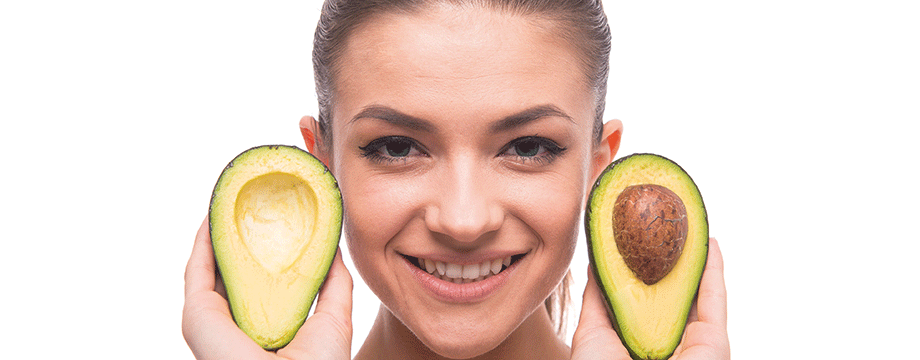The essential fats

We take a look at why essential fatty acids are so important for good health
Essential fatty acids are aptly named – not only because they are essential to our health and wellbeing, but because our bodies cannot make them, so it is essential that we get our intake through our diet.
“There are two main types of essential fatty acids – omega-3 and omega-6,” explains Dr Marilyn Glenville, PhD (www.marilynglenville.com). “Two types of omega-3 – EPA and DHA – are particularly important: DHA is needed for normal brain function and normal vision, and both are needed for normal heart function and keeping blood pressure down. These and other types of omega-3 and 6 fatty acids also play a role in healthy skin, good hormone balance and keeping cholesterol down.”
Unfortunately, due to the nature of the Western diet, many of us are consuming vastly more omega-6 than omega-3. Omega-6 is found in red meat, saturated fats and processed foods, whereas sources of omega-3 include cold water fish like sardines, mackerel and salmon as well as algae and nuts and seeds. It is therefore important that we eat the right kinds of foods in order to be getting the right balance of these essential fats.
Here are some of the main ways in which EFAs are so beneficial to our overall health and wellbeing:
Brain health
“Essential fatty acids are a key component for supporting your brain health,” says Frida Harju-Westman, in-house nutritionist at the health app Lifesum (www.lifesum.com). “Eicosapentaenoic acid (EPA) and Docosahexaenoic acid (DHA) are forms of omega-3 essential fatty acids which are particularly important for helping to maintain brain function. These fats help to increase the fluidity of cell membranes in the brain, which helps the cells to function and consequently enables the brain to function at its optimum level. Omega-3 fatty acids also help to aid the function of the chemicals in your brain that communicate information throughout your body and brain.”
Skincare
“Essential fatty acids are important in helping you get glowing, healthy skin,” says Frida Harju-Westman. “In order for cells to stay healthy, they need to stay hydrated and essential fatty acids play a vital role in helping your cells to retain water and flush out toxins. As you get older, your body’s ability to naturally retain moisture in your cells begins to diminish. Essential acids therefore play a vital role in helping your skin to retain water balance which, in turn, helps your skin to look plump and hydrated. Essential fatty acids can also help counteract oily skin as they help the transference of cells which, in turn, flushes out the oil clogging up your pores. Not only this, but they can also help to counter dryness in the skin, which is perfect if you suffer from mild eczema.”
Heart health
“Omega-3 fats have been shown to help protect the heart by lowering blood pressure and triglycerides,” says nutritionist Sandra Greenbank (www.sandragreenbank.co.uk). “Omega-3 fats reduce the risk of thickened artery walls (atherosclerosis) by reducing inflammation and thinning the blood to help it flow smoothly. Omega-3 fatty acids also decrease the risk of abnormal heartbeats (arrhythmias), which can lead to sudden death.”
Pregnancy, babies and children
“An adequate intake of EPA and DHA is essential during pregnancy,” says Sandra Greenbank. “This is because it has a beneficial effect on a baby’s brain formation as well as the neurological and visual development of the baby. Some studies also show a correlation between higher intakes of omega-3 fats during pregnancy and a reduced risk of allergies in children, lower rates of pre-term labour, and a lowered risk of preeclampsia. Many children are deficient in EPA and DHA, the vital building blocks of a healthy brain and eyes. It’s worth considering a supplement in those children who don’t consume oily fish weekly. Some studies show a benefit of fish oil supplementation in children with autism, ADHD and dyspraxia.”
Inflammation
“Essential fatty acids help to reduce inflammation, which is at the core of many modern day chronic health problems,” explains Amy Morris, naturopathic nutritionist for Water For Health (www.water-for-health.co.uk). “Omega-3 type fatty acids have the ability to prevent the formation of pro-inflammatory compounds called prostaglandins. There are many factors that can cause inflammation to strike at a cellular level, but of major concern is the lowering of prostaglandins as they are so potent and damaging. So, by increasing your intake of omega-3 fatty acids derived from a pure and fresh fish oil, this could help reduce the risk of inflammation and any inflammation that already exists.”
Did you know?
“Nails provide an external sign of your health, with weak, brittle nails often signalling nutritional deficiencies within the body,” says Amy Morris. “Ensuring that you have enough omega-3 in your diet can help to lubricate and moisturise your nails and prevent nail disorders. Omega-3 fatty acids can help reduce inflammation within your nail bed, nourishing and promoting the health of cells that give rise to your nail plate.”
Try this!
“The best natural sources of EPA and DHA are a good-quality fish oil supplement containing the ideal ratio of 510mg DHA to 770mg EPA,” explains Dr Marilyn Glenville. “Although seeds and nuts – especially flax and chia seeds – contain omega-3 fatty acids, it’s not the same type as found in oily fish, so these are not generally a good source of anti-inflammatory fats.”
Try this!
“In order to ensure you are getting enough omega-3 essential fatty acids, try eating mackerel on toast for breakfast or take a can of tuna into work to eat as a snack or, alternatively, take fish oil supplements such as cod liver oil every morning,” says Frida Harju-Westman.
Try this recipe for pan-fried halibut with haricot beans
Read more Your Food articles here...
Read articles from our latest issue here...